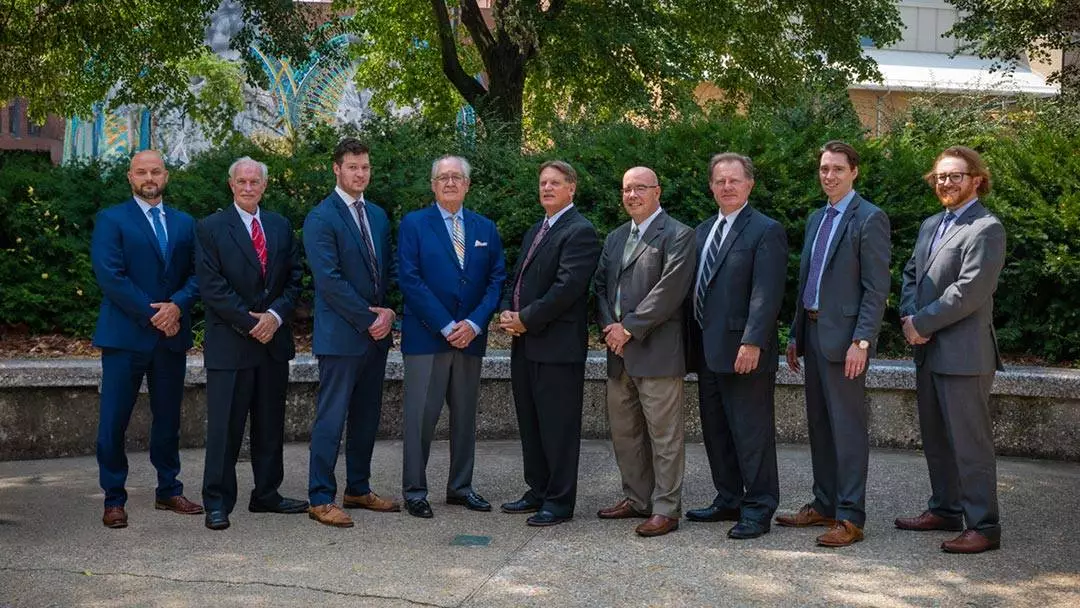
Motorcycle crashes are often violent events. More than 80% of all reported motorcycle crashes result in injury or death to the motorcyclist. Operating a motorcycle requires more skill and coordination than driving a car, just as operating a two-wheeled bicycle requires more skill than riding a tricycle. For the freedom of riding outside the protective bubble of a car or truck, motorcyclists must take extra precautions, both to anticipate and avoid other drivers’ potential negligence, and after a crash, to make sure essential evidence is preserved, all the facts are gathered promptly, and all witnesses are identified.
Motorcycle accidents can cause serious injuries, and a motorcycle accident lawyer experienced in the unique issues pertinent to motorcycle accidents can guide you through the process of recovering all damages to which you are entitled—medical bills, lost income, and more. It is essential that you protect your interests from the moment of the accident until you have been fully compensated.
Identifying everyone who may be at fault and who must pay you is critical to your claim.
Who is at fault?
According to the Ohio Department of Public Safety, motorcycle drivers were at fault in about 55.2% of crashes. Non-motorcycle drivers were at fault 35.4% of the time. With few witnesses and little evidence beyond the traffic crash report prepared by law enforcement, proving your claim may be difficult.
It’s important to identify everyone that may be responsible for the accident because each responsible party may have separate assets, and separate insurance, to cover any injuries and other damages you sustain.
- Driver Error: Driver error is the most frequent cause of motorcycle accidents. A common problem is other vehicles turning left in front of motorcyclists. In September 2018, a 33-year-old Toledo biker lost his life when an oncoming car turned left in front of him. The motorcyclist hit the car, was ejected from the bike, and died at the scene. Neither alcohol nor speed was a factor. The car’s driver was 19 years old. While the exact cause may not be known, young drivers often make this kind of judgment error.
In addition to turning in front of motorcycles, drivers of other vehicles often hit motorcycles while changing lanes, and rear-end motorcyclists at stop lights. There are several common reasons for drivers’ failure to observe bikers on the road:
- Inattention;
- Distracted driving;
- Blind spots; and
- Simple failure to “see” the bike.
Often, drivers of other vehicles simply don’t “see” a motorcycle, because they’re looking for vehicles the size of cars and trucks with two headlights. Motorcycles tend to blend into the other traffic, whether coming from behind or approaching head-on.
If another driver’s error caused your accident, that driver is likely to be liable for your injuries and other damages. If someone else owns the other vehicle, the vehicle’s owner may also be responsible. If the other driver was on a work-related trip or errand or was driving a company vehicle, that driver’s employer may be liable as well. A lawyer with experience in handling motorcycle and personal injury claims may be essential to ensure recovery from the various persons who may be liable, including drivers, their employers, manufacturers, and sellers of vehicles and equipment, governmental entities, and others.
- Faulty Equipment: Some accidents are caused by defects in one of the vehicles, while some result from inadequate maintenance. Sometimes a manufacturer of either the motorcycle, the other vehicle, or safety equipment that may not have performed as intended can be responsible for the defects in their products.
Like other vehicles, motorcycles now have many safety features like anti-lock brakes and traction control. However, these features may fail to work properly or may not comply with government standards or the manufacturers’ representations.
Sometimes helmets don’t comply with safety regulations. Federal safety standards specify the amount of force helmets should absorb and the amount of peripheral vision the helmet must allow. If you or a fellow biker suffers a head injury while wearing a helmet, it is important to determine whether the helmet met federal requirements.
- Dangerous Conditions: Often, motorcycle accidents are caused by roads and surfaces that are not properly maintained. In some instances, the government entity responsible for road maintenance may be at fault. Defects in the roads, like pavement ridges and potholes, can be contributing factors in motorcycle accidents. Roads may have treacherous curves that aren’t properly marked, or traffic controls might not be working properly at dangerous intersections. These are all potential issues that should be investigated to determine the cause of the crash.
Government entities can be liable for public road conditions. However, it can be tricky to determine which agency is liable (federal, state, or local). Hazardous road conditions existing at the time of the accident should be carefully documented before repairs are made.
Additionally, there may have been hazardous materials on the road. If some type of spill caused the accident, the owner and/or operator of the vehicle responsible for the spill might have been negligent in failing to prevent the spill. Again, to ensure your ability to recover from the spiller’s negligence, the presence of these materials must be documented before the hazard is removed.
Who pays?
In most cases, the insurer of the person or entity responsible for causing your injuries will have a duty to pay, once liability has been established. However, insurance companies cannot be required to pay more than the limits stated in the policy—even if the victim sustained damages far in excess of the policy limits.
- At-fault driver: In many accident cases, the person responsible for the accident has minimal insurance—$25,000 for each person injured, and in some cases, none at all. Particularly in motorcycle accidents, this insurance is woefully inadequate. Although the at-fault driver may have some assets, those assets may be exempt under bankruptcy laws, limiting your recovery to the at-fault driver’s insurance coverage limits.
If the driver responsible for causing the accident was driving a vehicle owned by someone else, the vehicle’s owner’s insurance may afford additional coverage for your injuries.
If the at-fault driver was acting within the scope of his or her employment at the time of the accident or was driving a company vehicle, his or her employer’s insurance policy may provide additional coverage for your damages. Employer policies tend to afford substantially more coverage than individual policies.
- Your uninsured/underinsured motorist (UIM) coverage: If you have UIM coverage, you may recover up to the UIM limits under your policy. Under current law, if you recover the amount of your UIM policy limits from the at-fault driver’s insurance company, you cannot recover any additional amount under your UIM coverage, even though your medical bills alone exceed the at-fault driver’s policy limits plus your UIM limits. So, if you can get more than your UIM limits under other insurance policies, your UIM policy won’t provide additional coverage.
- Government entities: If your accident occurred on a road that was in a state of disrepair or was otherwise defective, the government entity responsible for maintaining the road may be responsible for your injuries and other losses. Any subcontractors hired by the government entity may share that responsibility. Determining which entity or entities are responsible for your accident may take time, so it is imperative that any subcontractors be identified as soon as possible.
- Other liable persons and entities: If the other vehicle, your motorcycle, your helmet, or other safety equipment failed to conform to the manufacturer’s representations or government specifications, the manufacturer of the defective product may also be liable. Manufacturers’ ability to pay is likely to exceed an at-fault driver’s personal insurance policy, so it is important not to disregard this potential source of compensation. Particularly when another vehicle may be defective, it is essential to have that vehicle inspected by an expert before any repairs are made or the product is destroyed.
You may be able to recover even if you were partially negligent.
Even if you were partly at fault in the accident, you may have a right to compensation. In Ohio, you are not barred from recovery unless your negligence was more than 50% responsible for causing the accident.
In court (and often by agreement in the case of a settlement), there will be a determination as to who was responsible for what—i.e., by what percentage was each person at fault? For example, if you were speeding or changing lanes improperly, the other vehicle’s driver may argue that you were equally at fault. If you were found to be 50% or less at fault, you may still recover damages equal to the other driver’s proportionate share of fault.
Once the amount of total damages has been calculated, each party will be responsible for his or her proportionate share. In other words, if you are 20% at fault, and the other driver was 80% at fault, the other driver must pay you 80% of your total damages.
If other entities also contributed to the cause of the accident, their share of negligence will figure into the final calculation. If you sue one driver whose negligence contributed to the crash but fail to sue another driver whose negligence also contributed, the total award to which you are entitled can be reduced not only by your percentage of fault but also by the percentage of fault attributable to the driver you didn’t sue.
Don’t disregard anyone that may have had a hand in causing your injuries!
Here are the types of compensation you can recover:
Suppose someone else’s negligence caused your motorcycle accident. In that case, you are entitled to be compensated for all of your medical expenses, damage to your motorcycle, lost wages, pain, and suffering, and the costs of household and/or child care assistance required as a result of the accident. Your spouse and close family members may recover from the loss of your society and companionship as a result of your injuries.
Compensatory Damages
Compensatory damages are intended to compensate you for your accident-related losses. These damages can be either “economic” or “non-economic.”
Economic Damages
- Medical Bills – You should be able to recover your medical bills, including emergency room charges, hospital bills, doctors’ bills, tests, therapy, and medication, including the probable costs of any future care necessitated by the accident.
- Property Damage – You should be able to recover for damage to your motorcycle and any personal property damaged in the accident.
- Lost Wages – Any wages lost because your injury prevented you from working should be reimbursed. You are also entitled to future lost wages if your recovery is ongoing, or if your injury will permanently impair your ability to do the same work you did before the accident.
- Lost Profits – If you are self-employed or are paid on the basis of company profitability rather than fixed wages, your economic losses are compensable. It may be more difficult to prove lost profits, but experts can project your likely profits if you had not been injured.
- Other Related Expenses – Any other costs occasioned by your injuries should also be compensable.
Non-economic Damages
- Pain and suffering – These damages compensate you for the physical and emotional pain caused by the crash.
- Loss of Consortium – If your injuries interfered with your society and companionship with your spouse and/or children, they are entitled to damages.
Punitive Damages
In rare cases, punitive damages may be awarded to an accident victim. Punitive damages are intended to punish the wrongdoer for particularly egregious conduct—and hopefully deter similar conduct in the future—rather than to compensate any victim. Punitive damages are awarded only in cases where the wrongdoer acted recklessly or with malice. To act recklessly or with malice, the wrongdoer must act despite the knowledge that serious injury is substantially certain to occur or intend a harmful result.
Rely on a full-service firm to handle your motorcycle accident claim.
Motorcycle accident injuries can be serious, and both your medical costs and lost income can be high. If you were injured in a motorcycle accident, you should reach out to an experienced motorcycle accident lawyer with proven expertise in motorcycle accident claims and a record of success in these and other personal injury cases.
Like so many others who have placed their trust in us, you can count on Slater & Zurz LLP to thoroughly evaluate your claim, answer your questions, and advise you concerning the best way to proceed. Call our team of dedicated personal injury lawyers for a free consultation. We’re here to serve your legal needs with compassion, persistence, and the motivation to win.




